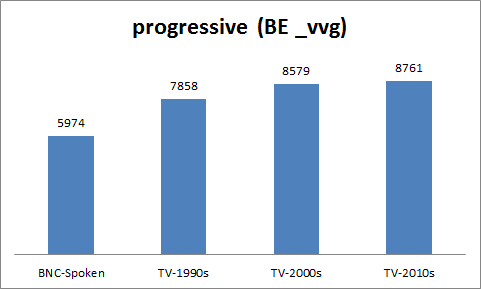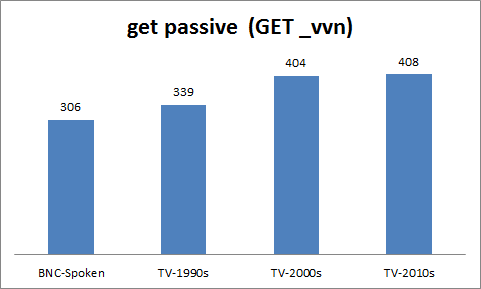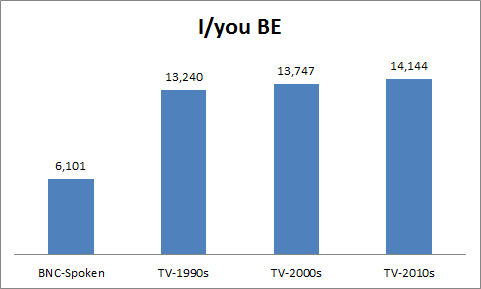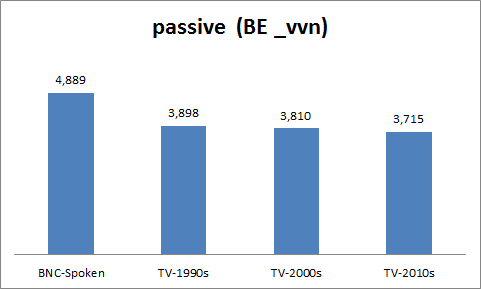|
In many cases, the TV Corpus is more informal than the Spoken portion of the BNC (British National Corpus) in terms of syntax (grammar). Features #1-3 below are informal features of English
syntax (click on the BNC link to see evidence of this). In nearly
every
case, these informal features are more common in the TV Corpus
than in the Spoken section of the BNC. Feature #4 (BE passive) is the least common in informal, spoken
English (see the BNC and COCA links), and it is even less common in
the TV Corpus. |
| The charts show the normalized frequency (per million words) in the BNC and the last three decades of the TV Corpus. The features are also much more informal than COCA Spoken, which is not shown in the pictures below, but which can be seen from the COCA link. | |
| 1 Progressive (BE _vvg): you're not listening to me | 2 get passive (GET _vvn): he got fired from his job |
| Links: BNC COCA TV | Links: BNC COCA TV |
| Higher = more informal | Higher = more informal |
|
|
|
|
3
I/you (+BE): you're my best friend BE represents all forms of the verb BE (am, was, etc) |
4 BE passive (BE _vvn): they were colonized in the 1880s |
| Links: BNC COCA TV | Links: BNC COCA TV |
| Higher = more informal | Lower = more informal |
|
|
|



